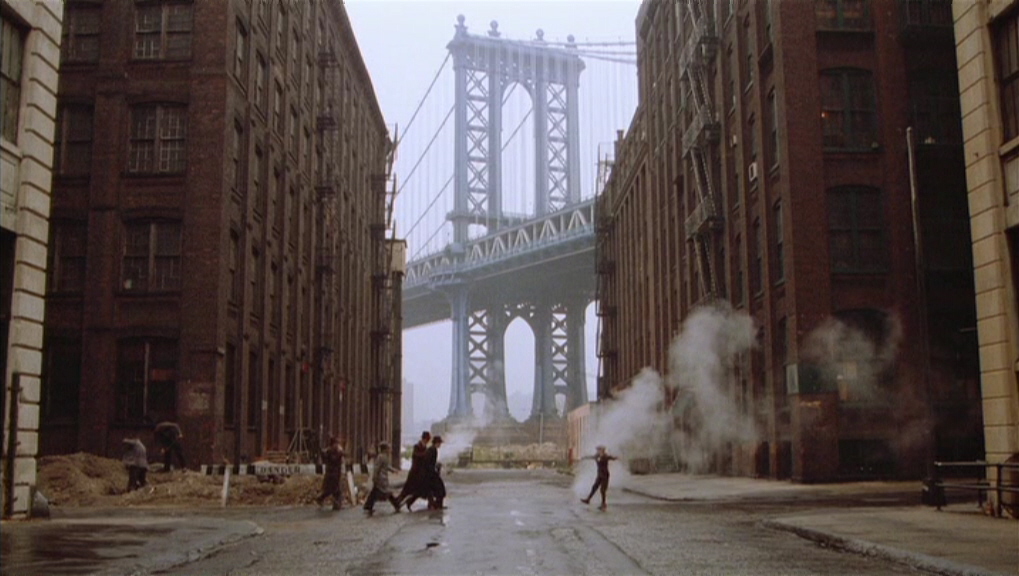Max : You’ll be carrying the stink of the streets with you for the rest of your life!
Noodles : I like the stink of the streets. It makes me feel good. And I like the smell of it, it opens up my lungs.

I just watched this interview with Tarantino where the interviewer says The Searchers was his ‘father / son Western’ and Tarantino responds that The Good, The Bad, and The Ugly was the Western he shared with his dad.
My dad and I watched a few Westerns together (The Outlaw Josey Wales, Tombstone, Silverado) but were more into mob movies as a genre. Once Upon in A Time was a favorite we shared, I think because it was more of an ‘outsider’ / ‘cult’ film–we liked The Godfather (1 & 2) and Goodfellas and A Bronx Tale, but everyone liked those.
The other thing that I think was captivating for us about Once Upon a Time in America was how challenging it is. It’s slow. It’s long (like 4 hours, one of the longest movies I have ever seen, though it doesn’t feel it). It’s disjointed with lots of time hopping.
And it’s a noir. As an audience, we’re trying to piece together the same story about a mysterious note and missing money from a hidden suitcase as the protagonist, Noodles.
Just as Leone inverts the typical noir trope of a detective protagonist by using a syndicate crime backdrop and cast of characters, he also inverts the trope of the femme fatale, casting Deborah as an aspiring dancing and actor, that we first encounter in all white (actually, who is almost always dressed in white) practicing ballet.
The primary source of tension in the film is not the broader conflict involving the mob / union / police / city, but the more intimate struggle between Deborah, Max, and Noodles. Noodles sits between Max and Deborah, each demanding his devotion, while each pursuing their own grand ambitions and constantly choosing to prioritize these over their relationship with him.
Noodles, while not a saint, seems to have some sort of moral center grounded in the value he finds in his friendships and relationships, and his willingness to sacrifice his power and freedom for the sake of these.
The final shot of the film, a big grin on Noodles’ face after he gets high in the opium den, is perplexing, and leaves me wondering what Leone thinks of the values, the viability of the values, of each of these characters.